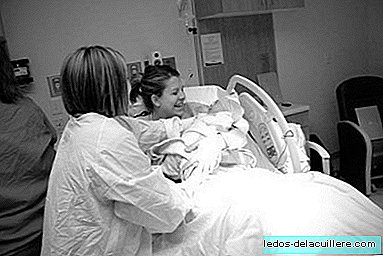
In the Global Congress of Gynecology and Obstetrics held these days in Barcelona WHO has indicated that 5% of caesarean sections performed in Spain could be avoided and unnecessarily endanger the mother.
WHO's maternal and perinatal health coordinator, Mario Merialdi, has estimated between 15 and 20 percent the recommended percentage of caesarean sections, those that are really necessary to avoid risks at the time of delivery.
In Spain, the cesarean section rate reaches 25 percent, although in private clinics this percentage rises to 29 percent, for only 21 percent in public health. The figures, as always, higher in private health, show that it is not necessary interventions but that it is an increase given by multiple factors.
The president of Congress, Lluis Cabero, believes that the cause is that
Private health doctors usually work alone and cannot ask for a second opinion when they doubt. It also influences "the opinion of the family and of the woman herself", which in private health "exerts more pressure" than in the public.
However, Cabero has ruled out "economic causes" because according to him most doctors charge the same for a C-section as for a natural birth.
In short, if we take into account that the excess of C-sections is due mainly to the poor attention in the childbirth, together with the ignorance to program them without reason, we will realize that these interventions are more than avoidable.
Experts point out that this high percentage is due to the misinformation of Spanish society, which considers caesarean section a minor risk-free intervention.
And while I can understand that there is a part of the population that has this lack of knowledge, I find it more difficult to believe that it is the medical staff who does not know the risks, so I do not understand that cesarean sections continue "lightly".
However, Lluis Cabero has explained that unnecessary caesarean sections are those decided by some doctors to be able to schedule work in advance and ensure "a short delivery", as well as those requested by some women who "do not want to suffer labor pains".
On the other side of the coin, the Global Congress of Gynecology and Obstetrics leaves us with other more positive data, such as that Spain has a good level of maternal and child health, since the number of women dying in childbirth is six for each 100,000, one of the best in the world.
Upgrade: As our reader Ileana has pointed out, 5% of unnecessary caesarean sections are about total births. That means that, based exclusively on the numbers of cesarean deliveries, the unjustified are 20%.
Regarding caesarean sections, we hope that hospitals will continue to take measures to modernize their protocols and adapt them to WHO standards, so the cesarean section ceases to be above the recommended.












